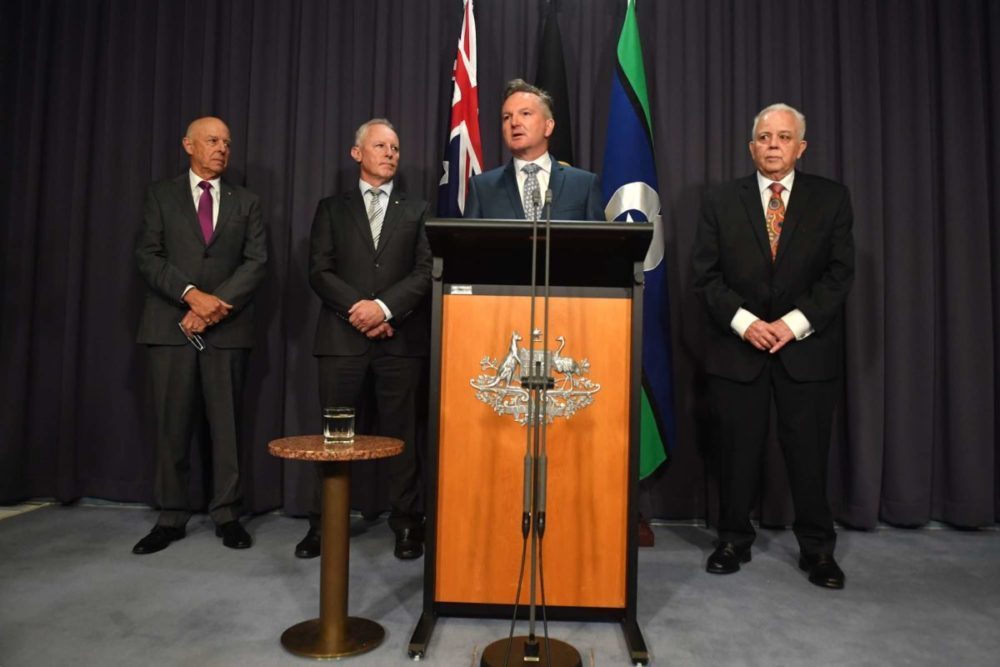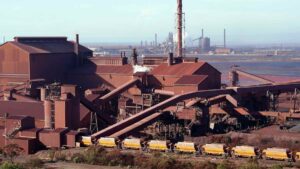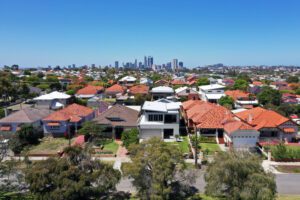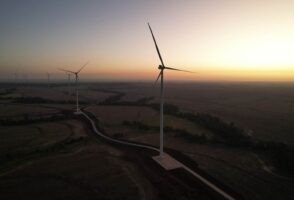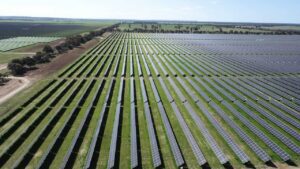Newly appointed climate and energy minister Chris Bowen found it difficult on Thursday to observe the “new way of politics” promised by the new Labor government, but he made it clear who he thinks is to blame for the energy market crisis that is gripping Australia.
“I don’t hold the former government accountable for any particular element of the situation, the serious situation we are facing,” he said, before doing pretty much exactly that, accusing the the Coalition of leaving a “bin fire.”
“I do say this though: The former government’s nine years of denial and delay, their 23 energy policies, their changes of policy approaches have left Australia ill-prepared and our energy markets ill-prepared for the challenges we face today in relation to gas and energy supply.”
Bowen’s point, agreed upon by nearly all segments of the energy industry, bar the fossil fuel lobby, is that Australia’s stalling on renewables and storage has left if badly exposed to the surge in costs of fossil fuels and the increasing unreliability of coal generators.
Australia’s electricity prices surged again on Thursday, hovering above $400/MWh in all states in the National Electricity Market, and a staggering $550/MWh and more for most of the day in South Australia.
A day after the main grid set new wind and solar output records, which relieved the price surge at least for a few hours in most states, South Australia found itself moving from feast to famine early on Thursday morning as its wind fleet produced virtually nothing, less than a megawatt of combined output, or 0.02 per cent, at one point.
South Australia has averaged more than 64 per cent renewables over the past year, and supply regularly exceeds 100 per cent of local demand, but apart from its small fleet of batteries – Hornsdale, Lake Bonney and Dalrymple North – it still has precious little storage to fill in gaps, and only one link to another state.
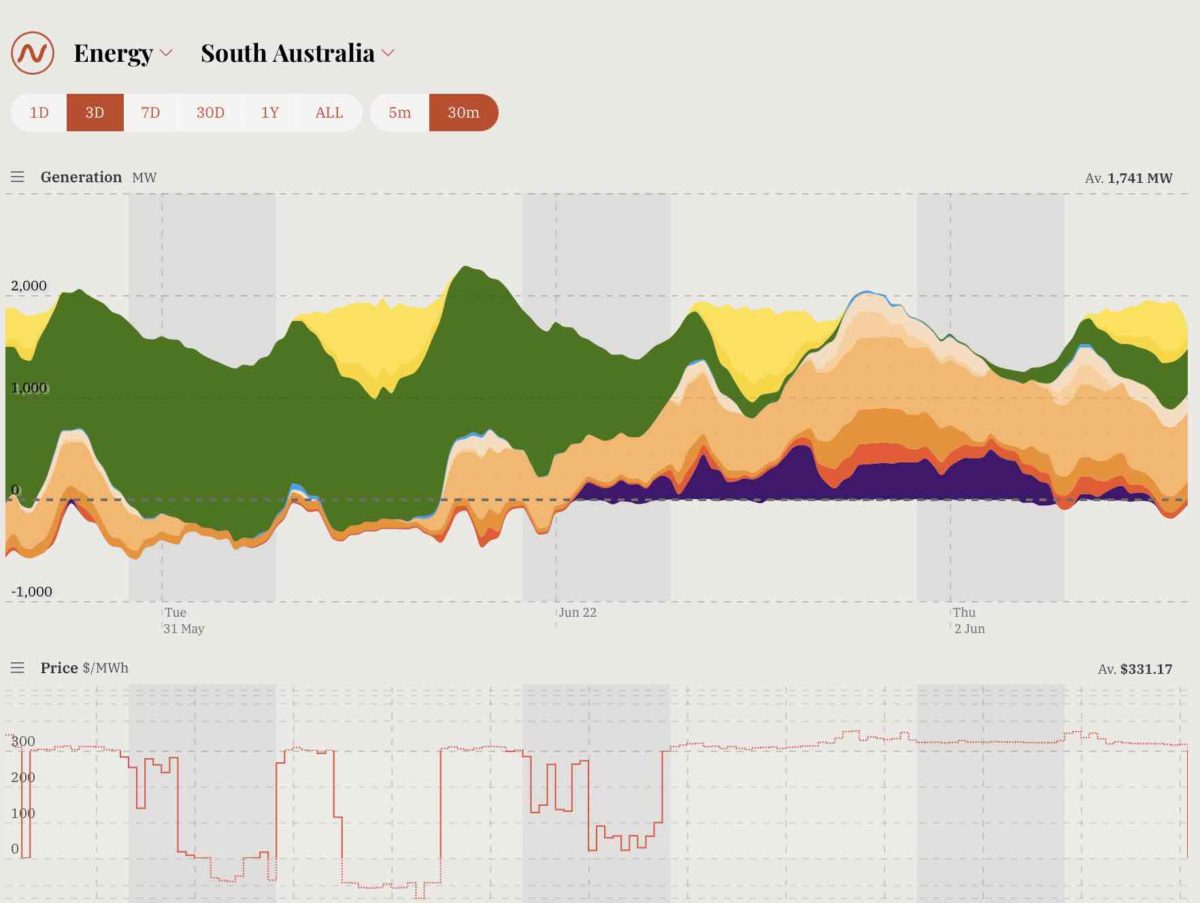
“If we had more storage and renewables and better transmission, we would be much better placed to deal with the current challenges,” Bowen said.
“That is exactly what our Powering Australia plan seeks to implement, but it will take some time to implement. As I have said, you don’t overturn nine years of dysfunction, denial and delay overnight. But action is necessary.”
His comments came as the Australian Energy Market Operator made a rare intervention into the domestic gas market after warning of shortfalls, issuing a “threat to system security” notice late Wednesday and triggering the Gas Supply Guarantee Mechanism for the first time since 2017.
It’s not that Australia is short of gas, it’s just that nearly all of it is being sold to international customers at inflated prices, which means domestic customers are in danger of going without.
AEMO’s intervention appears to have been successful in unlocking gas supplies from Queensland to flow south to Victoria, where the shortage was most acute.
Bowen and other ministers, meanwhile, are scrambling to meet with their state counterparts, regulators and market operators, and industry to find solutions. One of the most touted possible solutions has been the supply trigger that effectively reserves certain amounts of gas for domestic consumption.
However, Bowen made it clear that this trigger was not going to solve the short-term crisis, because it would not come into effect until next January, even if announced now. Most energy analysts expect the situation to ease before then.
“The days of knee-jerk reactions, the days of ad hoc interventions, the days of implementing ill-thought-out policies are the days of the last nine years,” Bowen said.
“They are not the days of this government. This government will take action when necessary and appropriately we will do so, based on expert advice, we will do so cooperatively with our state and territory colleagues. The climate wars are over and the energy wars are over.”
The gas industry, however, is using the crisis to push for yet more gas developments, and to fast-track existing proposals.
According to the AFR, Santos CEO Kevin Gallagher said the shortages in the domestic market and the price shocks of recent weeks “had nothing to do with the behaviour of gas producers or exporters.”
Gas supplies are not the only issue. Coal shortages also affecting generators in Queensland, because of flooding, and crippling the output of Australia’s biggest coal generator, the 2.8GW Eraring plant in NSW, because of problems in the mine that supplies it.
Eraring owner Origin has been forced to seek coal supplies elsewhere, leaving it exposed to the soaring market price for coal. Other coal generators will also be exposed to market prices when their supply contracts expire.
Interestingly, Bowen held his first press conference as climate and energy minister in the company of emergency climate leaders, including ex fire chief Greg Mullins, who wants a 75 per cent emissions target by 2030, and predicts Labor will increase its target beyond the current 43 per cent cut.

